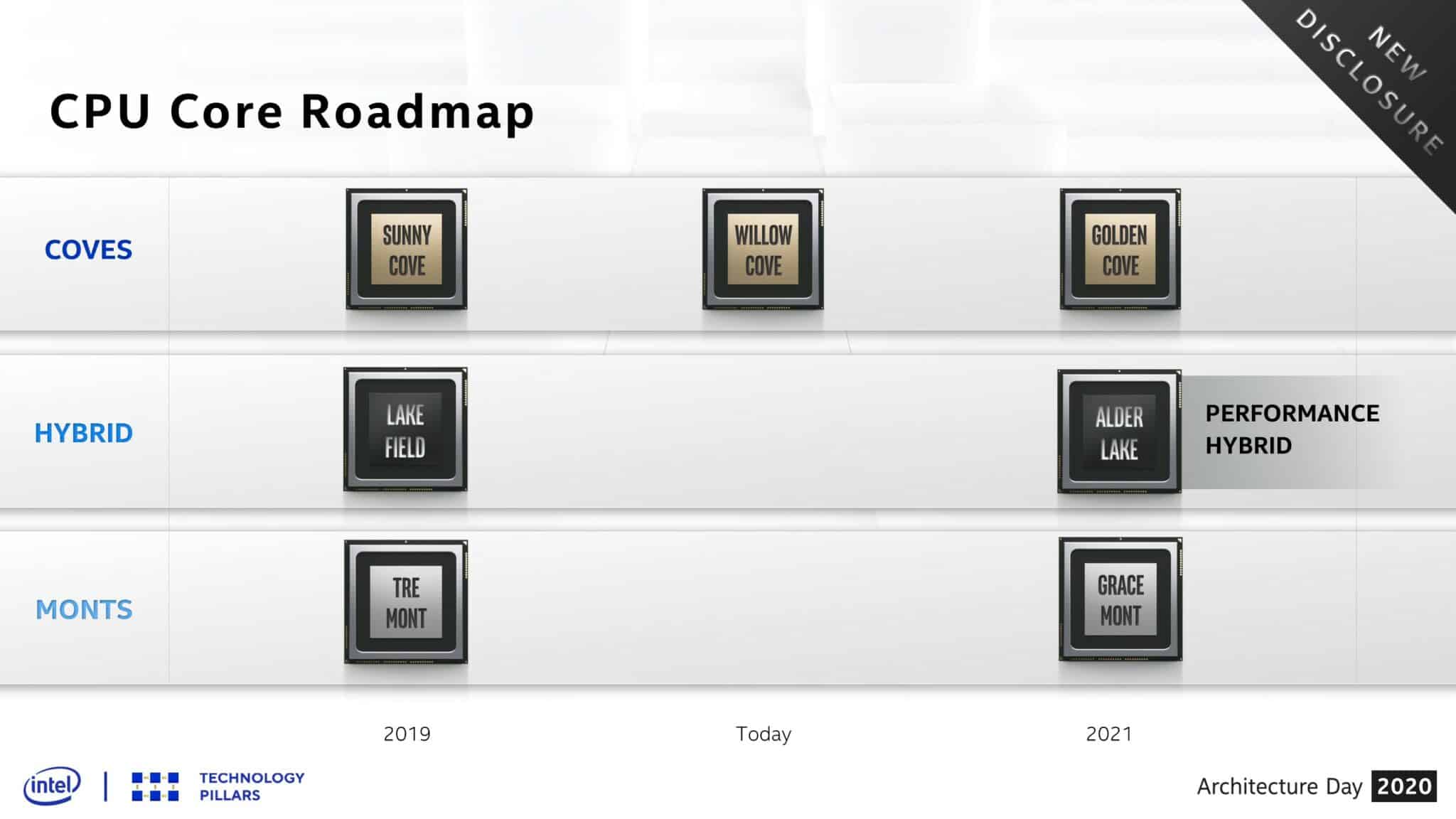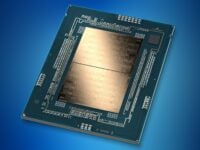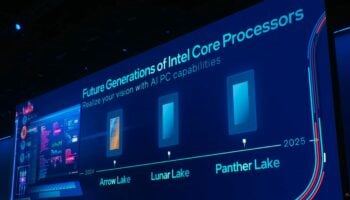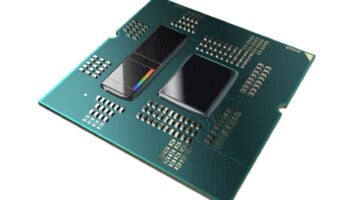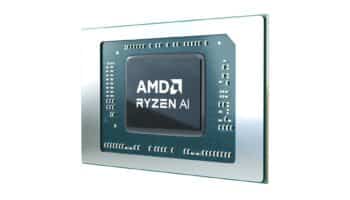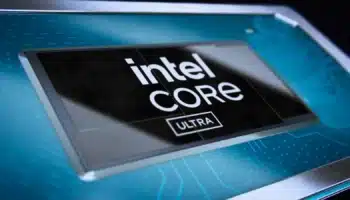SiSoftware has published its review of the Intel Core i9-12900K. The benchmarks include vector SIMD, cryptography, financial and scientific workloads. Keep in mind that just like most pre-release benchmarks and reviews, it’s important to take this particular one with a grain of salt. SiSoft has taken sufficient measures to ensure that Alder Lake-S doesn’t suffer from under-utilization or improper thread assignment. You can read the nitty-gritty details about that below before we move on to the benchmarks.
Like Windows (and other operating systems), we have had to make extensive changes to both detection, thread scheduling, and benchmarks to support hybrid/big-LITTLE. Thankfully, this means we are not dependent on Windows support – you can confidently test AlderLake on older operating systems (e.g. Windows 10 or earlier – or Server 2022/2019/2016 or earlier) – although it is probably best to run the very latest operating systems for best overall (outside benchmarking) computing experience.
- Detection Changes
- Detect big/P and LITTLE/E cores
- Detect correct number of cores (and type), modules and threads per core -> topology
- Detect correct cache sizes (L1D, L1I, L2) depending on core
- Scheduling Changes
- “All Threads” (thus all cores + all threads – e.g. 24T)
- “All Cores (big+LITTLE) Only” (both core types but not threads – thus 16T)
- “big/P Cores Only” (only “Core” cores) – thus 8T/P
- “LITTLE/E Cores Only” (only “Atom” cores) – thus 8T/E
- “Single Thread big/P Core Only” (thus single “Core” core) – thus 1T/P
- “Single Thread LITTLE/E Core Only” (thus single “Atom” core) – thus 1T/E
- Benchmarking Changes
- Dynamic/Asymmetric workload allocator – based on each thread’s compute power
- Note some tests/algorithms are not well-suited for this (here P threads will finish and wait for E threads – thus effectively having only E threads)
- Best performance core/thread default selection – based on test type
- Some tests/algorithms run best just using cores only (SMT threads would just add overhead)
- Some tests/algorithms (streaming) run best just using big/P cores only (E cores just too slow and waste memory bandwidth)
- Some tests/algorithms sharing data run best on same type of cores only (either big/P or LITTLE/E) (sharing between different types of cores incurs higher latencies and lower bandwidth)
- Dynamic/Asymmetric workload allocator – based on each thread’s compute power
For this reason, we recommend using the very latest version of Sandra and keep up with updated versions that likely fix bugs, improve performance and stability.
With that out of the way, let’s move on to the benchmarks. First up we have the vector SIMD (FP and Int) benchmarks.
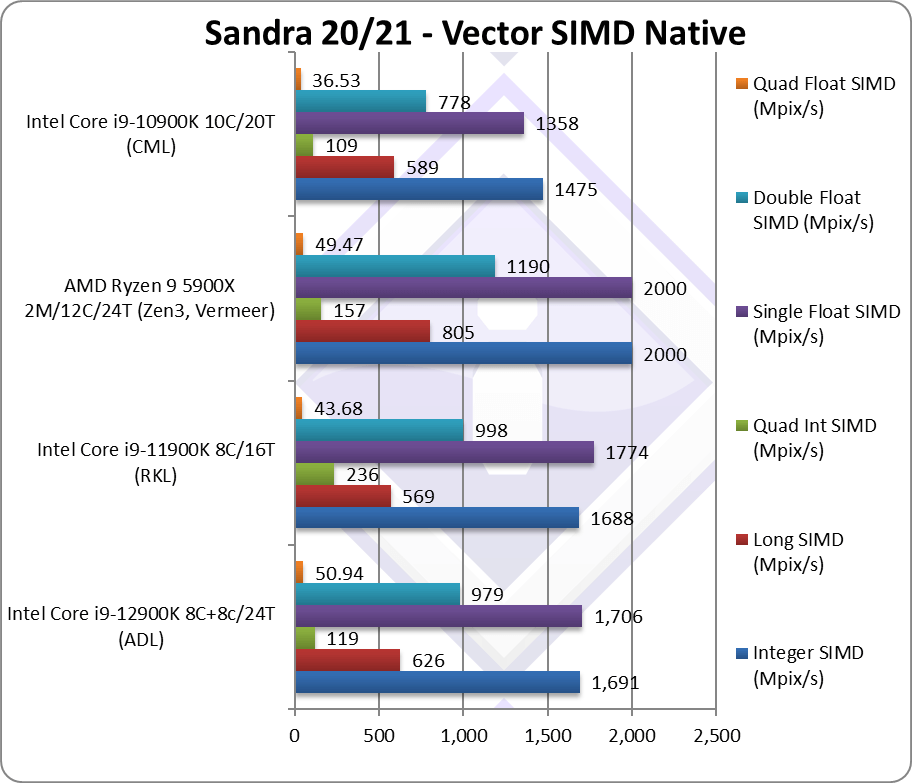
Here, the 12900K is faster than everything else but only in the quad-float SIMD tests (heavy float). In integer SIMD, long SIMD, Quad Int SIMD, and Single Float SIMD the Ryzen 9 5900X manages to be faster and the Core i9-11900K (Rocket Lake) is on par or just slower.
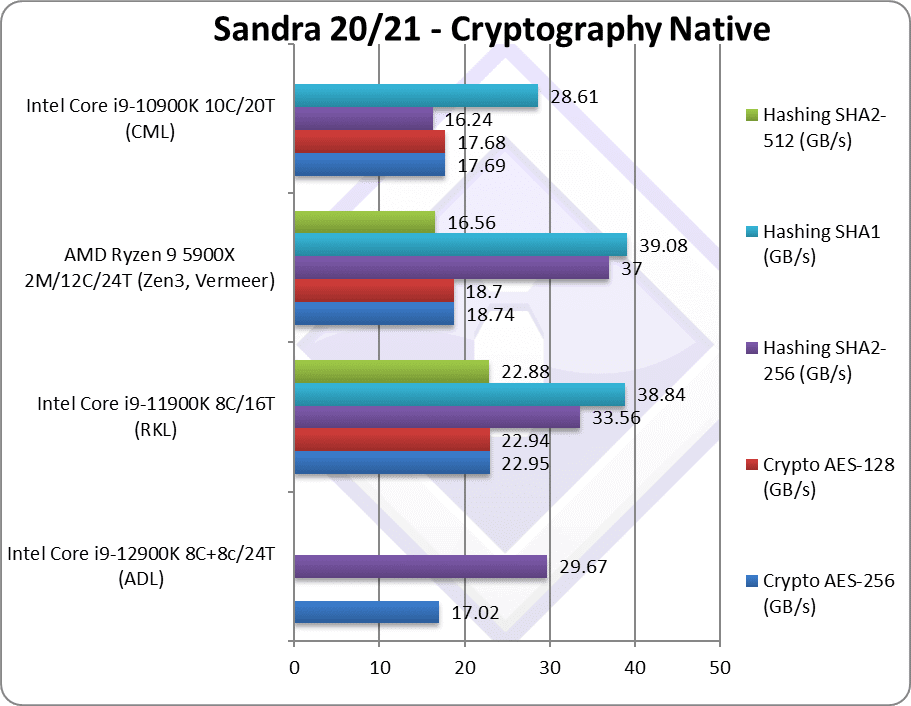
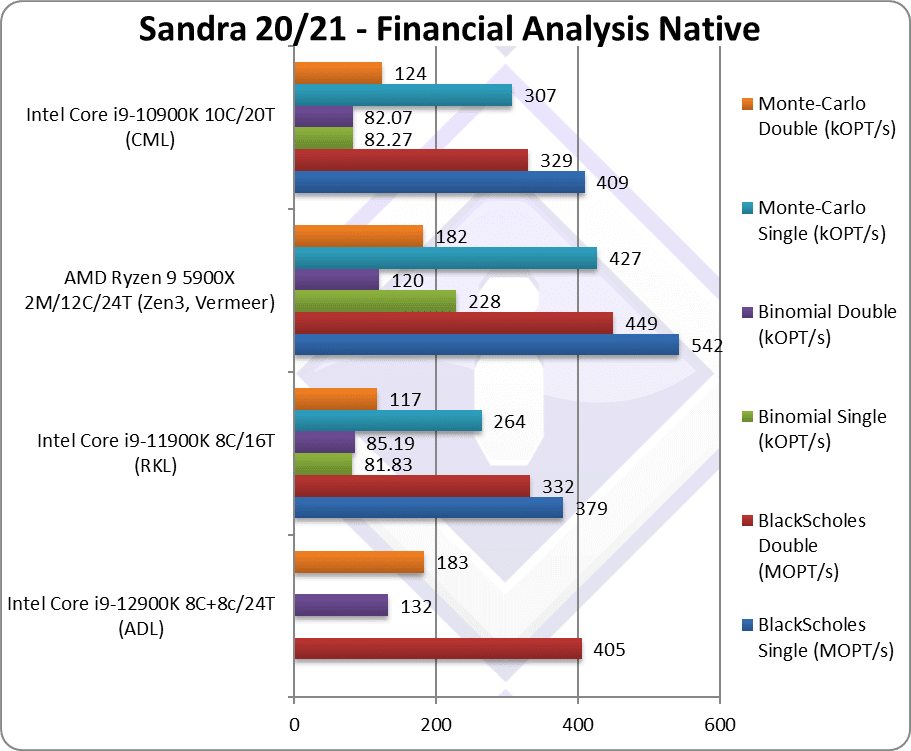
In financial and crypto-analysis, we’re lacking a fair bit of data. The former only includes crypto AES256 and SHA 256 while the latter is missing roughly half of the scores. Regardless, while the Core i9-12900K destroys everything in the Financial analysis workload, it performs rather poorly in crypto. This is likely due to the lack of AVX512 support where the 11900K excels.
Overall, this is a very inconclusive and early benchmark suite that doesn’t tell us much about the overall capabilities of Intel’s next-gen processors. There are some key takeaways here. For example, AVX512 advantages will be missing on Alder Lake, no matter how minute and sparse they were. Furthermore, while it may perform really well in some workloads, there are some areas where it won’t be all that impressive. Last but not least, older applications might not get the same boost as newer ones. Either way, Alder Lake should shake things up in the desktop market after a long period of Ryzen dominance. We should see notable uplifts in both gaming and content creation workloads.
